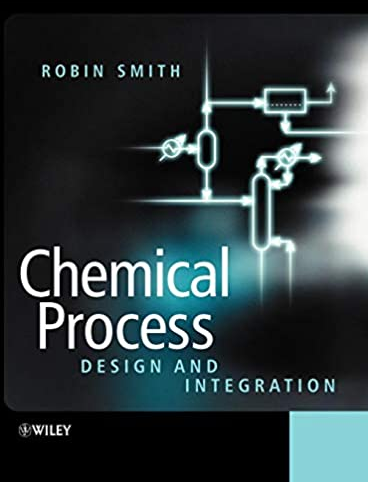Chemical Process: Design and Integration 1st Edition by Robin Smith, ISBN-13: 978-0471486817
[PDF eBook eTextbook]
- Publisher: Wiley; 1st edition (April 11, 2005)
- Language: English
- 712 pages
- ISBN-10: 0471486817
- ISBN-13: 978-0471486817
This book deals with the design and integration of chemical processes, emphasizing the conceptual issues that are fundamental to the creation of the process. Chemical process design requires the selection of a series of processing steps and their integration to form a complete manufacturing system. The text emphasizes both the design and selection of the steps as individual operations and their integration. Also, the process will normally operate as part of an integrated manufacturing site consisting of a number of processes serviced by a common utility system. The design of utility systems has been dealt with in the text so that the interactions between processes and the utility system and interactions between different processes through the utility system can be exploited to maximize the performance of the site as a whole.
Chemical processing should form part of a sustainable industrial activity. For chemical processing, this means that processes should use raw materials as efficiently as is economic and practicable, both to prevent the production of waste that can be environmentally harmful and to preserve the reserves of raw materials as much as possible. Processes should use as little energy as economic and practicable, both to prevent the build-up of carbon dioxide in the atmosphere from burning fossil fuels and to preserve reserves of fossil fuels. Water must also be consumed in sustainable quantities that do not cause deterioration in the quality of the water source and the long-term quantity of the reserves. Aqueous and atmospheric emissions must not be environmentally harmful, and solid waste to landfill must be avoided. Finally, all aspects of chemical processing must feature good health and safety practice.
It is important for the designer to understand the limitations of the methods used in chemical process design. The best way to understand the limitations is to understand the derivations of the equations used and the assumptions on which the equations are based. Where practical, the derivation of the design equations has been included in the text.
The book is intended to provide a practical guide to chemical process design and integration for undergraduate and postgraduate students of chemical engineering, practicing process designers and chemical engineers and applied chemists working in process development. Examples have been included throughout the text. Most of these examples do not require specialist software and can be performed on spreadsheet software. Finally, a number of exercises have been added at the end of each chapter to allow the reader to practice the calculation procedures.
Chemical Process Design and Integration offers:
- A combination of comprehensive textbook and practical guide
- A wide range of process technologies
- Details of the latest process integration design methods
- Emphasizes sustainable process development
- A practical guide to clean process technology
- Comprehensive coverage of the design of energy and water systems
- Large number of worked examples and class exercises
Professor Robin Smith is Head of the Centre for Process Integration at the University of Manchester Institute of Science and Technology (UMIST) in the United Kingdom. Before joining UMIST he had extensive industrial experience with Rohm & Haas in process investigation and process design, and with ICI in computer-aided design and process integration.. He was a member of the ICI Process Integration Team that pioneered the first industrial applications of process integration design methods. Since joining UMIST he has acted extensively as a consultant in process integration projects. He has published widely in the field of chemical process design and integration, and is a Fellow of the Royal Academy of Engineering, a Fellow of the Institution of Chemical Engineers in the UK and a chartered engineer. In 1992 he was awarded the Hanson Medal of the Institution of Chemical Engineers in the UK for his work on clean process technology.
What makes us different?
• Instant Download
• Always Competitive Pricing
• 100% Privacy
• FREE Sample Available
• 24-7 LIVE Customer Support






Reviews
There are no reviews yet.